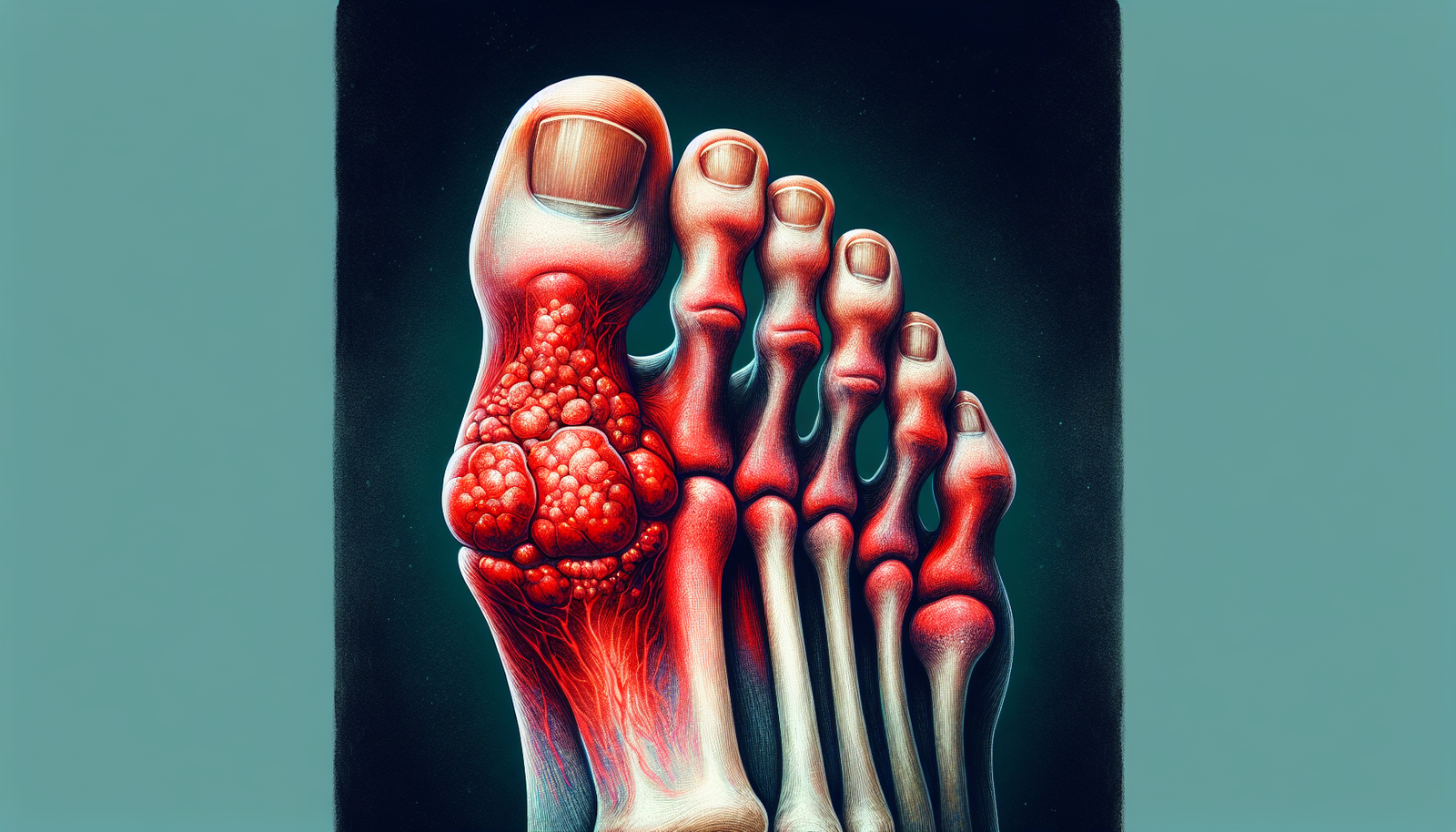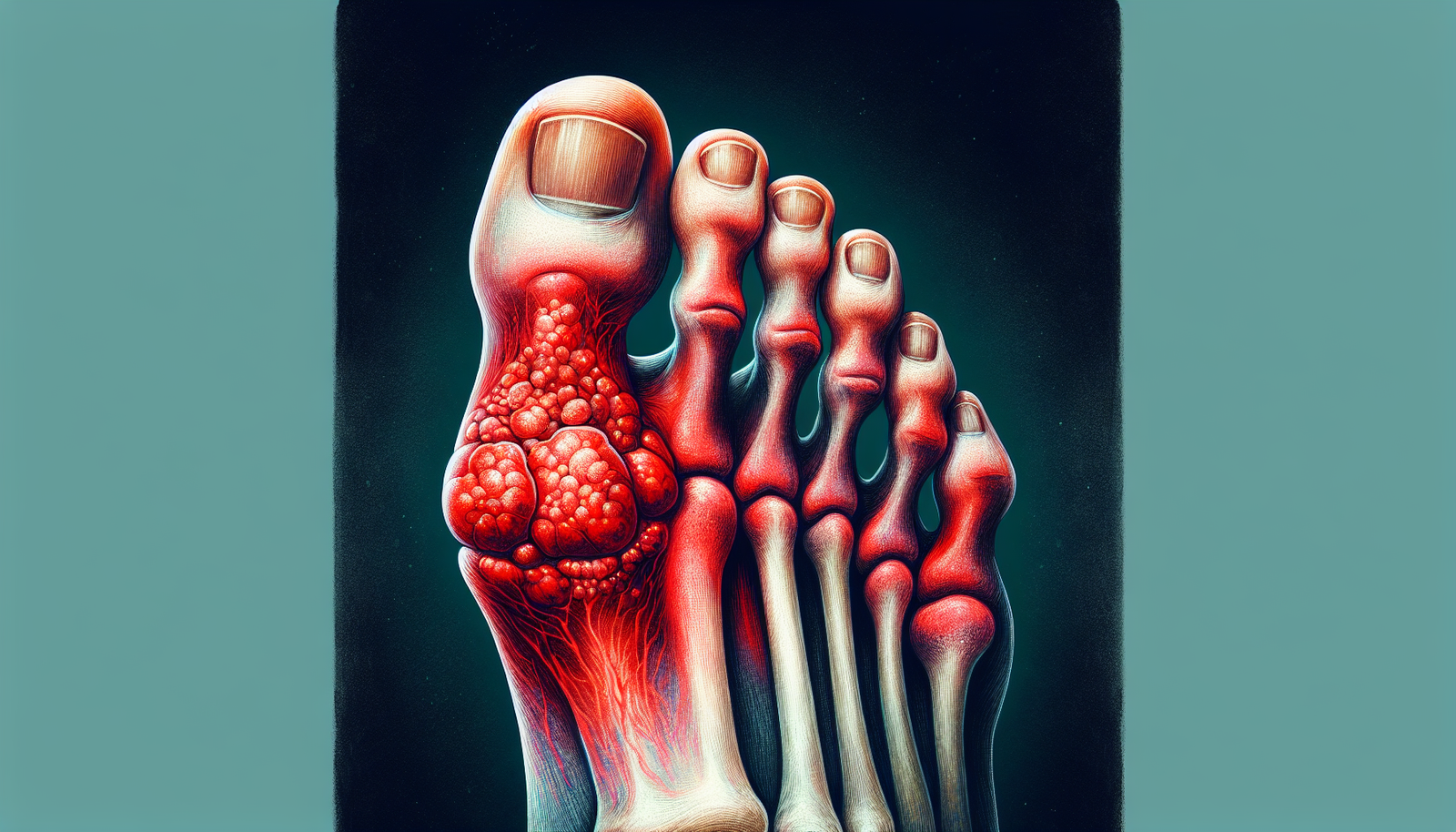Gout is a painful and potentially debilitating form of arthritis that affects millions of people worldwide. In this article, we will explore the common symptoms of gout and provide you with a better understanding of what to look out for. Whether you're experiencing sudden joint pain, swelling, or intense discomfort, we've got you covered with all the essential information you need to know about the symptoms of gout. So, let's get started and learn how to recognize this condition and seek the appropriate medical assistance.
Joint Symptoms
When it comes to gout, one of the key indicators of its presence is acute joint pain. This pain can be sudden and intense, often waking you up in the middle of the night. It typically affects the joints in your lower extremities, such as the big toe, ankle, knee, foot, wrist, and elbow. Along with the pain, you may also experience swelling, redness, and warmth in the affected joint. This can make the joint tender and sensitive to touch, and you may find that your range of motion is limited.
Skin Symptoms
Gout can also manifest in the form of skin symptoms. Skin inflammation is commonly associated with gout, leading to redness and discomfort in the affected area. Additionally, you may notice peeling or scaling of the skin, which can make it feel rough and dry. Another common symptom is itching, which can be quite frustrating and may contribute to your overall discomfort.
Nodule Symptoms
In some cases of gout, you may develop tophi, which are small, firm bumps that form under the skin. These tophi can be a sign of more severe gout and can occur in various places such as the elbows, fingers, hands, feet, and Achilles tendons. The presence of tophi is typically associated with more advanced stages of gout and may require medical intervention.
Systemic Symptoms
Gout can also impact other areas of your body, leading to systemic symptoms. These symptoms can include a fever, chills, fatigue, and a general sense of malaise or feeling unwell. It's important to pay attention to these systemic symptoms, as they can be an indication of the severity of your gout flare and may require medical attention.

Affected Joints
While gout can affect various joints in your body, there are certain areas that are more commonly affected. The big toe is one of the most frequently impacted joints in gout, and the pain and swelling can be particularly intense in this area. Other joints commonly affected by gout include the ankle, knee, foot, wrist, and elbow. The severity of the symptoms may vary depending on the specific joint involved.
Other Joint Involvement
Gout is not limited to affecting only one joint at a time. In fact, it often involves multiple joints simultaneously. This can make the symptoms even more widespread and challenging to manage. Additionally, if the gout is left untreated or becomes chronic, it can lead to joint deformities, resulting in long-term damage to the affected joints.

Time Frame of Symptoms
The time frame of gout symptoms can vary from person to person. Some individuals may experience episodic flares, where the symptoms come and go intermittently. During a flare, the pain and discomfort can be intense and debilitating. On the other hand, chronic gout refers to persistent symptoms that occur for an extended period. It's important to work closely with your healthcare provider to manage both acute flares and chronic gout effectively.
Triggers for Gout Flares
Certain lifestyle factors and habits can trigger gout flares. High-purine foods, such as red meat, seafood, and organ meats, can increase the risk of a gout flare-up. Alcohol consumption, particularly beer, has also been linked to gout. Dehydration, obesity, and certain medications, such as diuretics or aspirin, can also play a role in triggering gout flares. Additionally, injury to a joint can provoke a gout attack, so it's crucial to be mindful of any potential trauma to your joints.
Complications
If left untreated or poorly managed, gout can lead to various complications. One such complication is the formation of kidney stones. These stones can develop when uric acid crystals accumulate in the kidneys, causing significant pain and discomfort. Joint damage is another potential complication of gout. Repeated gout attacks can result in joint erosion and deformities, impacting your daily activities and overall quality of life.
Misdiagnosis
Gout can sometimes be misdiagnosed, as its symptoms can mimic other conditions. Infection, for example, can cause joint pain, swelling, and redness, similar to gout. Rheumatoid arthritis and osteoarthritis are other conditions that can be mistaken for gout, as they also involve joint inflammation and pain. It's important to consult with a healthcare professional for an accurate diagnosis if you suspect you may have gout.
Understanding the symptoms of gout is crucial for obtaining proper treatment and managing the condition effectively. If you are experiencing any of the symptoms mentioned, it's essential to consult with a healthcare provider for a thorough evaluation and appropriate management plan. With the right approach, you can minimize the impact of gout on your daily life and maintain optimal joint health.



